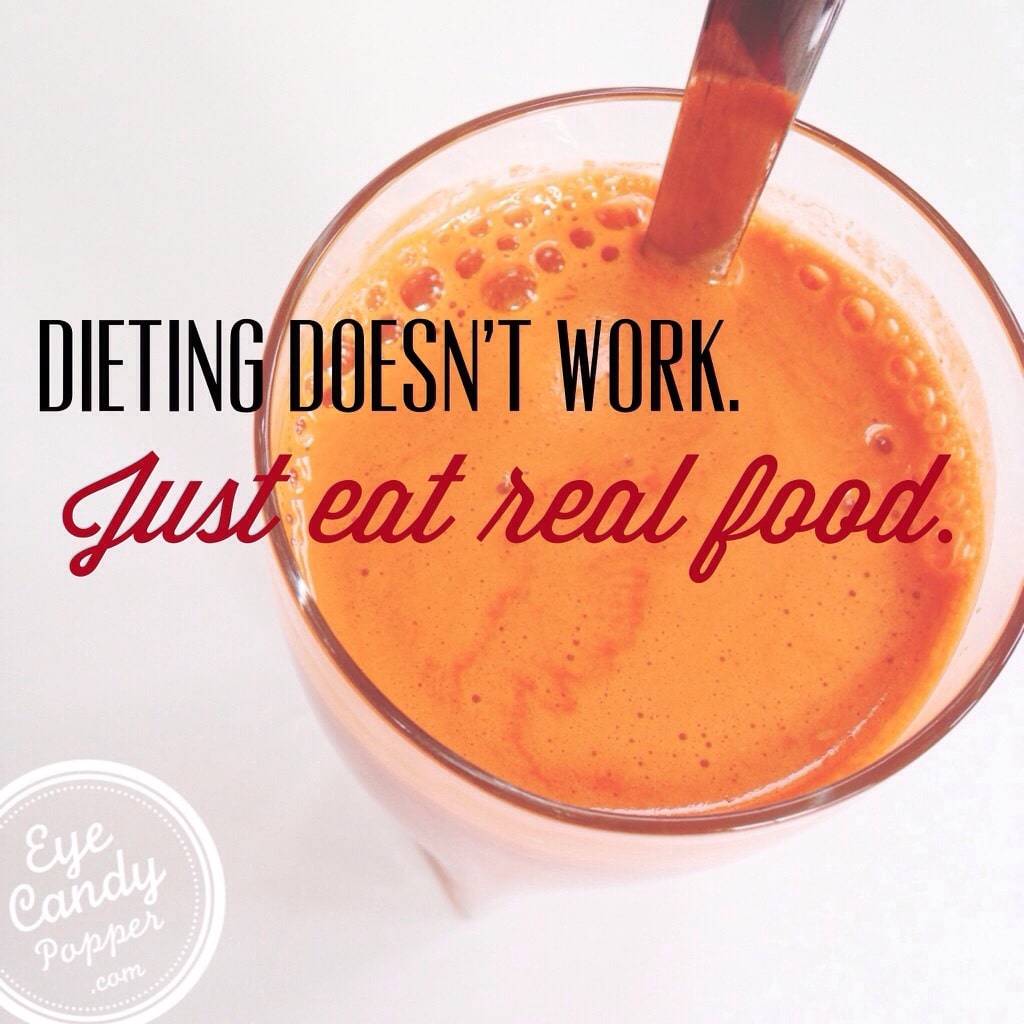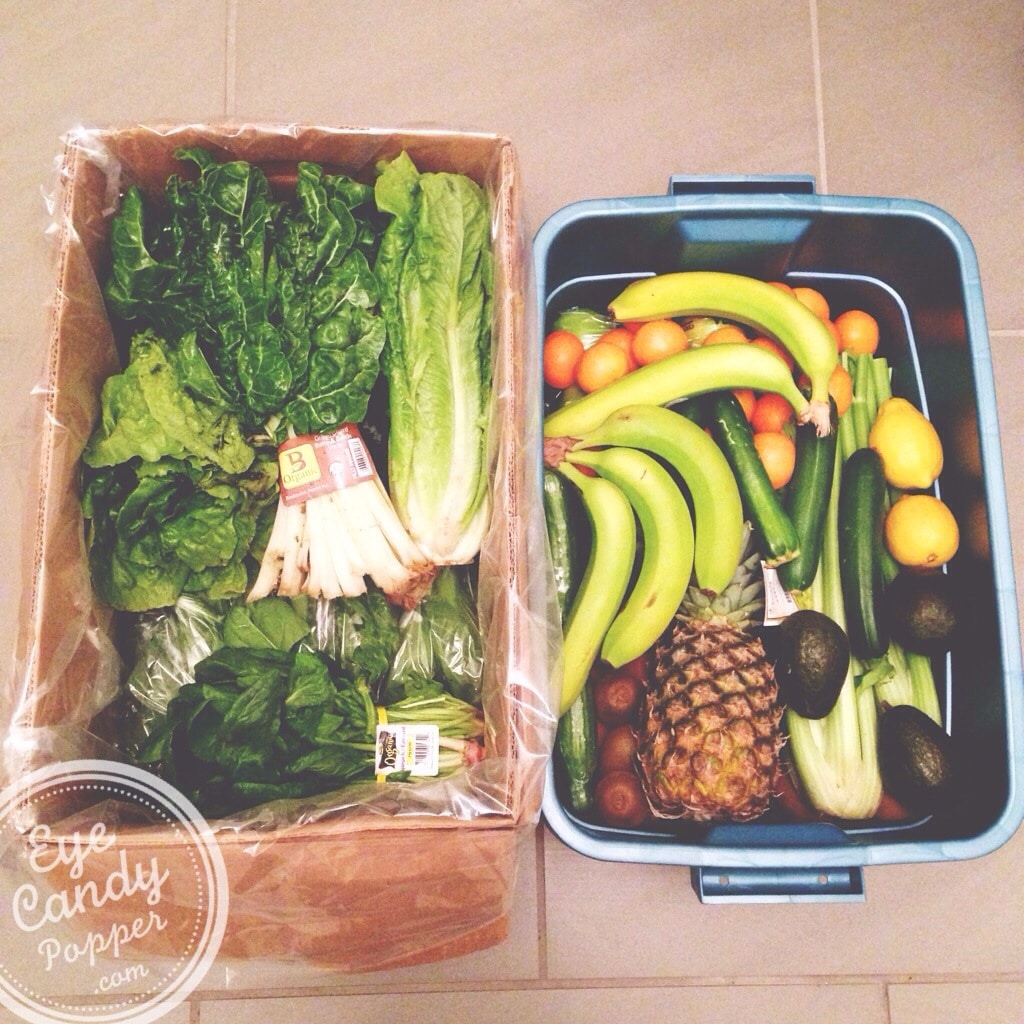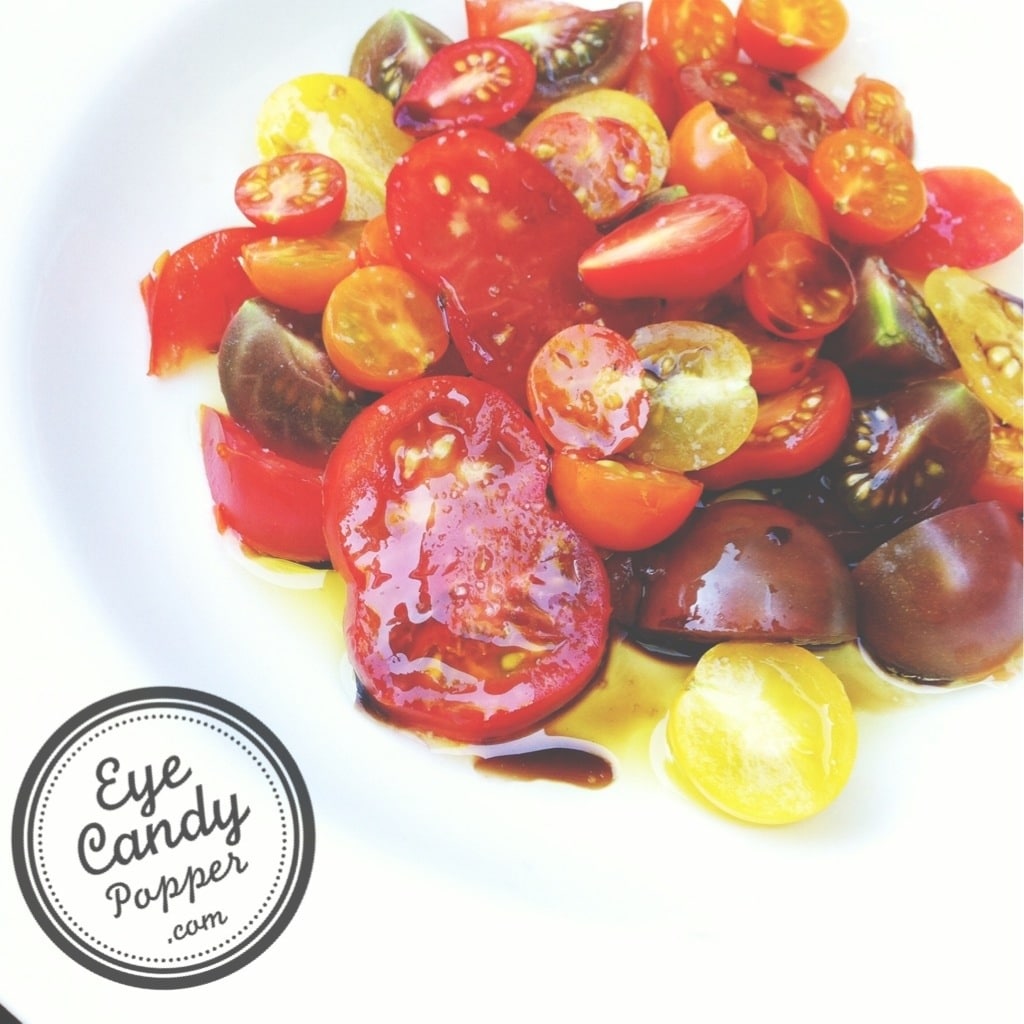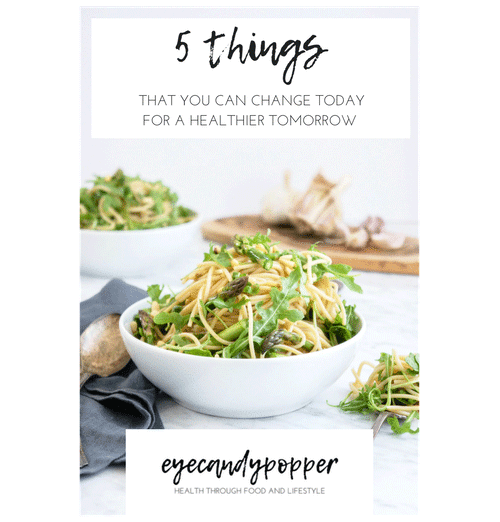This is an article I’ve been meaning to write for a long time. Something near and dear to my heart. I realize that I might shock some people, but hear me out first. We need to talk about the way we label ourselves.
It’s part of a trend in our culture. I guess it first started with “Low-fat” and “Fat-free”, and then it (thankfully) morphed into healthier versions. In my bio, I called myself a “flexitarian” simply because that’s the best word I could find to describe my views on food. I am flexible. I eat “real food”. Mostly plants. But I eat some grass-fed organic meat sometimes too. And some free-range organic eggs that I buy myself at a local organic farm (the eggs will be produced by the hens whether we eat them or not, and if there is no rooster to fertilize them, it’ll become food for other animals or end-up rotting. Eating an egg is not like eating a baby chicken). And some local organic dairy products that come from grass-fed cows. Although my diet doesn’t depend on animal products, as I eat mostly vegan. But does that mean that a vegan or vegetarian diet is the way to go? Maybe. Maybe not. Maybe being vegan 90% of the time is better for you. Maybe going vegan 100% is good for you, and then in a few years, you feel the need to eat some (free-range,organic) eggs. Or not. That’s cool too. Do what feels right for you, although eating junk food or too much meat should never be an alternative. haha And just because gluten-free is popular right now doesn’t mean you shouldn’t eat any bread at all (read my article on The biggest Gluten-Free Myth). Can you cut down on the amount of bread, baked goods and other carbs you eat? Most likely! Should you stop eating all grains and deprive yourself of delicious whole-grains like quinoa, amaranth, spelt, rye, or buckwheat? I don’t think so. I strongly support reducing the amount of durum wheat we eat, even if whole-grain and organic, because we should eat a variety of food, not just wheat, corn and soy that constitute the basis of all western processed food. I eat whole grains, but to be honest, not necessarily every day. I have a few pieces of toast during the week and I make healthy pancakes on the weekend. Once in a while, we’ll have wholegrain spaghetti made with quinoa and amaranth, or spelt, and occasionally we might have brown basmati or wild mix rice. But it’s not a daily thing.
I’ve known vegans and vegetarians who would almost never eat vegetables. They would eat way too much tofu, and usually non-organic, GMO, super processed, or fried tofu. On the opposite side, there are some people who vow not to use any oil whatsoever, even the healthy ones needed by our body and our brains to function properly. I’ve seen people following the paleo diet who eat way too much meat and the only veggies they have on their plate is avocado. Simply stating that you’re vegan, vegetarian or paleo doesn’t mean you’re eating a healthy diet of ‘real food’.
What do I mean by “real food”? It’s easy, I simply mean food that is:
a) organic or organically-grown, meaning no synthetic pesticides/herbicides/insecticides or synthetic fertilizers are used, and the seeds haven’t been genetically modified, because if it involves a lab, then it’s not real food anymore. I say this without any shame. I know some other bloggers or health writers will say things like “eat organic as much as possible” in an almost apologetic way, but I think that goes without saying: Yes! you should eat organic as much as possible, but you should move towards 100% organic, because eating just a little bit of poison on a daily basis is not good for anyone. (To read more about what organic encompasses, read the 5-part series, called What is so special about organic?)
b) food that naturally grows like that, or is being raised, in a natural way, that has been minimally processed, if any. Something that hasn’t been processed at a molecular level, in a way that you couldn’t recognize that food anymore, or that has been stripped of all nutrition. Usually if it comes packaged with lots of plastic and cardboard, it probably isn’t ‘real food’.
That’s it! The rest is kind of personal choices and preferences (see more below).
Through all the various social media that I am part of, I can see the way so many people eat, and try to follow specific guidelines to various diets and “labels”, but it’s always easy to see the flaws too. Especially when people use the pretext of a new-found label to eat what they simply wanted to eat in the first place. Many years ago came the Atkin diet. Many people lost a lot of weight on it, banishing all grains and carbs and eating a ton of meat. Naturally they lost weight because their bodies suddenly didn’t have the burden of refined flour and sugar, but eventually their health wasn’t doing so good. I think this morphed into the paleo diet, which is one diet that isn’t actually bad at its core. But from what I can see on Instagram, Pinterest, etc. some people use this as an excuse to eat a ton of meat, and they have no regard for what kind of meat it is either. I’m not saying all of the Paleo eaters do this, but a lot of them do. The core principles of the paleo diet says that the meat should be grass-fed, that their vegetables should be organic as much as possible. That they shouldn’t eat refined sugar, or dairy, and to limit their grain intake. But some have taken this to the extreme level of not eating any grains whatsoever, which in turn creates a frenzy for grain-free products. Again, I have no issue with these recipes, I create some myself, because I think we should eat a varied diet of real food. Other than vegetables, fruits and water, there isn’t too much that we absolutely need on a daily basis. But I don’t think that we should eat a lot of the same food either. As an example, kale is really healthy, but should we eat only that, all the time, every day? No. Coconut and avocados are healthy, but should we eat it at every meal and slap it on everything? No. We need to eat a variety of foods, and I think that is why we should try to eat in-season. The seasons will help to guide us in what we should be eating.
There is a newer trend, especially popular with teenage girls, of eating “healthy” by eating mainly fruits. Some people on the opposite side of the spectrum have gone as far as to say that eating too much fruits will make you fat. Ok. So, to those people, I say “well, it certainly beats eating McDonald’s!” haha However, as healthy as fruits are, I still don’t think it should be the core of our daily diet. Fruits have always been considered “nature’s candy”. There’s a reason why fruits have always had a preferred status. They’re sweet! They contain lots of fibres and nutrients, they taste delicious and most people have no issues eating them. I think fruits should be eaten as a treat (like a dessert) and in moderation. Vegetables, legumes and whole-grains will give you long-lasting energy. Fruits give you a boost of instant energy. We need a balance of both. Vegetables should be the main course, fruits should be the dessert. I would never tell someone that they are eating too much fruits, as long as they eat more vegetables. And again, fruits are not supposed to be available all-year-round. We should eat in-season. If you really crave fresh strawberries in the middle of winter and you buy yourself a container of organic strawberries, don’t feel bad about it! Just enjoy it! But don’t do that on a daily/weekly basis though. These fruits don’t even taste that good because they come from so far away and were picked before they were even ripe. They don’t contain as much nutrients as in-season ones.
I’ve mentioned something on the subject of fruits to a young girl on Instagram recently, to which she replied to me “I don’t pretend to know what is right. I eat mainly fruits, and lots of vegetables too. This has been working for me so I’m sticking to it.” Well, then again, she’s 17 years-old, so maybe she’ll change her mind by the time she’s 37, but it’s funny that food has become such a trendy, yet almost taboo subject, where people will either tell you what to eat or tell others that they shouldn’t try to tell them what’s right while they tell others about their way of eating.
Just to be clear, I’m not trying to tell anyone what to eat on a daily basis, but I am trying to make people think for themselves though. Think about what we put in our bodies and the dangers associated with some. I provide information and recipes to inspire people to go back in the kitchen and cook from scratch. I also base my opinion on history. I’ve always been a fan of history 🙂 Our recent history shows us without a doubt that this mono crop culture of greasy, refined and ultra-processed western diet is simply not working. In only about 70 years, it ruined our health, the animals’ health, and our planet. We’ve never had so many degenerative chronic diseases and cancers as we do now. Obesity is so common that they simply make things bigger around the issue to accommodate it. I’m not saying we need to go back to eating hard bread and water only, as if we’re living in WWII, but we need to be balanced and informed.
Here’s my simple food philosophy in a nutshell:
Buy basics, and eat a variety of real food, local and in-season to the area where you live as much as possible: vegetables, fruits, legumes, various whole grains, fish, meat and animal products (from humanely-raised grass-fed, free-range and organic sources only)
The majority of our diet should be plant-based, especially vegetables
That’s kind of it. With a proper pantry and a fridge filled with fresh organic produce, you can only make good food. That doesn’t mean you have to eat bland! Be creative! Try new things!
I think people feel better if they “belong” with a group, or if they have a name for whatever ails them (like being diagnosed with something).
We should listen to our bodies! The problem in today’s society is that people are no longer in touch with their bodies, using pain killers and other drugs to numb every symptoms they might have. They learn about what drugs to take for X symptoms, but they don’t know why they have those symptoms and how they could change their habits in order to help themselves.
As an example, it is so common for someone to have a headache nowadays, but does anyone take the time to stop and think: “Why do I have a headache? Is it because I’ve been working on the computer for too long (or watching TV for too long)? Is it because I haven’t been sleeping properly? Is it because I’m reacting to something I ate at lunch? Is my body fighting a cold?” No. Most people will just focus on the symptom and simply take an aspirin (or Tylenol, or Motrin, or Advil, etc.) and think they’ve taken care of the issue. But the issue is still there, and your body will now have to deal with added synthetic chemicals that will put extra pressure on your organs (like your liver or kidneys) on top of still dealing with whatever issue you had to begin with.
So, don’t just label yourself with a specific diet, like popping a pill, and hope that all your body issues and illnesses will go away.
Listen to your body and your common-sense. Eat real food. Feel good. Live happy.
ECP xo
Share the love! Use the buttons below to like/share/pin this article.




Great blog! Loved it. So true what you said. I think it’s because people have the concept that if a little is good than a lot must be better when in fact we need a little of everything. Our body is like the planet: an ecosystem where everything has a place and reason for. We can’t take out one without affecting another, something that humans have a tendency to forget. Love your blog, continue the great work!
I couldn’t have said it better! Thank you for sharing!
Great Post! I agree in many ways that we need to go back to eating real foods. The fad and trend diets are not as beneficial for many because their is no knowledge behind it, it is someone else saying “don’t eat gluten, it’s bad” and people just follow without asking questions. More emphasis should be made on educating everyone about health and nutrition and eating a balanced diet. Unfortunately, it can be difficult economically for many to eat real food.
I agree that it can be a challenge in some areas, however not impossible with commitment. I’ve started paying attention to what a lot of people buy at the grocery store and noticed that they spend a lot of money on useless food-like products, like soda, chips, candies, etc. I believe that if they wouldn’t buy all of those ultra-processed “food”, that money could go towards better quality ingredients. People pay for a temporary “convenience”, in more ways than one.
I also think that there is a myth surrounding healthy eating being expensive. The latest research suggests it’s a very small amount more, and based on my own experience, I spend the same or less than most people in my area. It’s all about knowledge and commitment.
In order to get commitment, like you said, people need to be more educated in order to be able to make their own decision.
I think you and I do a good job at helping 😉
I completely agree. We evolved on this planet because it produces for us exactly the nutrients we need to survive and thrive. We don’t need to try to “improve” food in a lab. I know many of the products we have now were created out of an altruistic desire to try to feed hungry people in impoverished countries, but somewhere along the line we got very confused about what real food is. I love blogs like yours that try to re-educate people about something we used to just know instinctively. Other animals on earth know what they’re supposed to eat and go about their lives just fine on that instinct. It’s really scary to me how far humanity has strayed from this. As a species, we no longer really know how to feed ourselves because our concept of what food is or should be is so convoluted. Great post!
Thank you! I’m glad you liked my post. We do live in a funny society where we need to re-educate ourselves to trust our body, instead of treating it and every natural aspect around it like the enemy.
I’ve done lots of research throughout the years, but I realized one day that we have to stop searching for the “perfect” everything (perfect diet, perfect cream, perfect pill, perfect food), we just need to trust our instincts more. Once we understand that, I think it makes life so much simpler. Buy good food = eat well = be healthy = take care of our bodies and the environment = be happy. As simple as that. 🙂